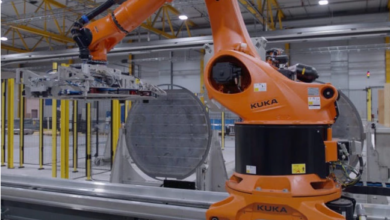H2-Industries participates in MEFED
Hydrogen is expected to play a key role in the future global energy economy.

The German government agreed to facilitate the connection between hydrogen off-takers in Germany and H2-Industries’ hydrogen produced from organic waste in the MENA region.
Following detailed conversations at the MENA Europe Future Energy Dialogue (MEFED) energy conference in Jordan, Germany’s Federal Minister for Economic Affairs and Climate Action, Robert Habeck, met with the CEO of H2-Industries, Michael Stusch.
The event was hosted by the Jordanian and German governments on 8 – 9th June. The meeting initiated a highly productive conversation regarding the future energy relationship between the Middle East, North Africa and Europe, focusing on the potential of green hydrogen, energy efficiency, innovation and renewable energy.
The amount of hydrogen required to be imported to Europe is currently estimated to be more than 10 million tons per year by 2030. To meet this demand, potential hydrogen producers and hydrogen off-takers must be brought together to fast-track required capacity building.
Michael Stusch, CEO of H2-Industries, said, “European Governments need to understand the important contribution that waste-to-hydrogen power plants can play in a rapid and effective closing of the supply-demand gap for hydrogen, especially in the next ten years, in addition to its environmental benefits.”
H2-Industries’ projects planned in the MENA region will be able to produce in 2030 up to 2 million tons per year of clean hydrogen and will be instrumental in securing a steady, future supply of clean hydrogen for Germany and its industries many of which are already undergoing a required transformation from fossil to clean energy.
H2-Industries has recently signed MOUs for the design, delivery, installation, and operation of hydrogen production plants in Egypt and Oman, employing its unique waste-to-hydrogen power plant concepts, which are scheduled to be operational from 2025. Further agreements in the MENA region are now in preparation. Hydrogen produced in these power plants will be stored in a liquid organic hydrogen carrier (LOHC) which will then be safely and efficiently transported to Germany where industrial off-takers will use it.
